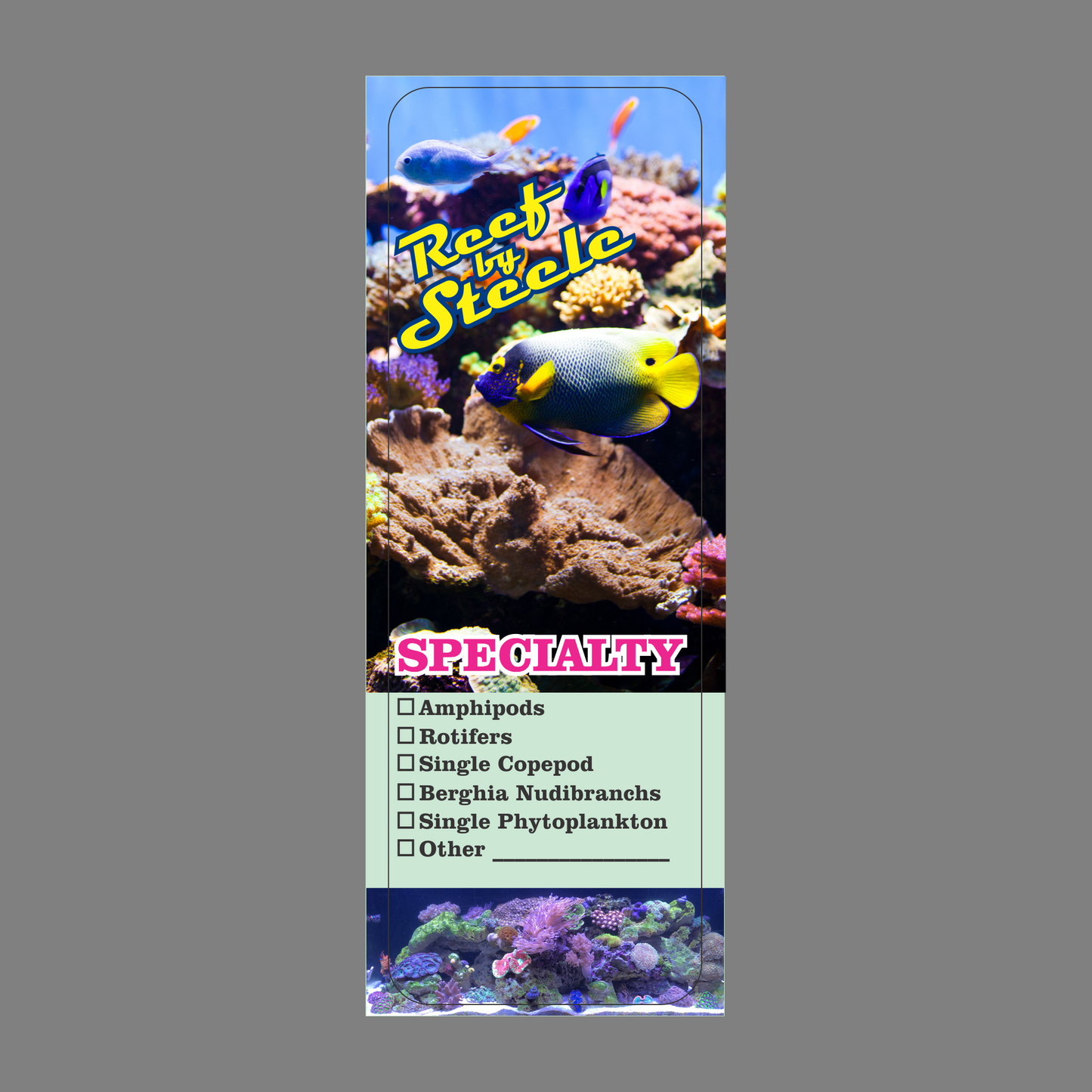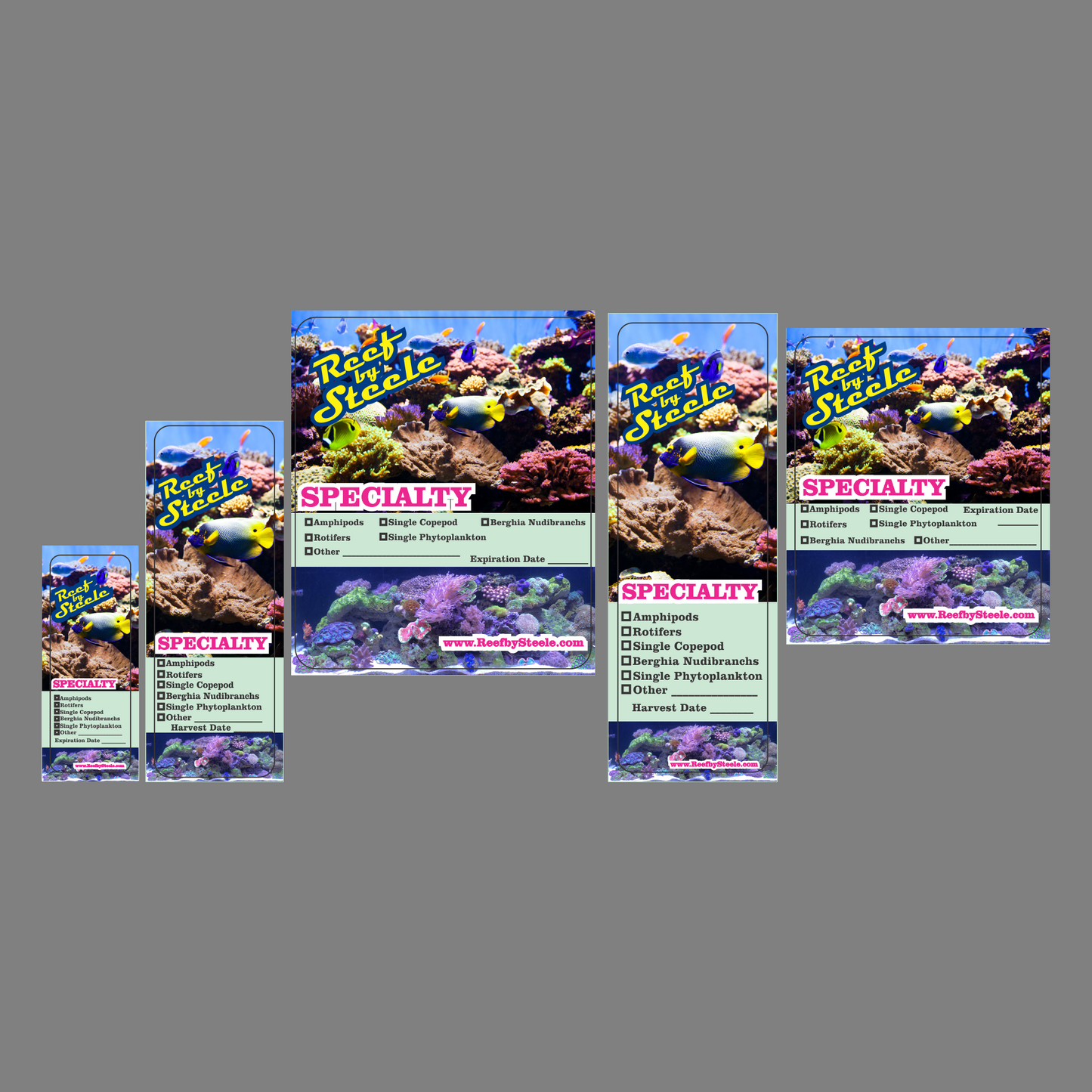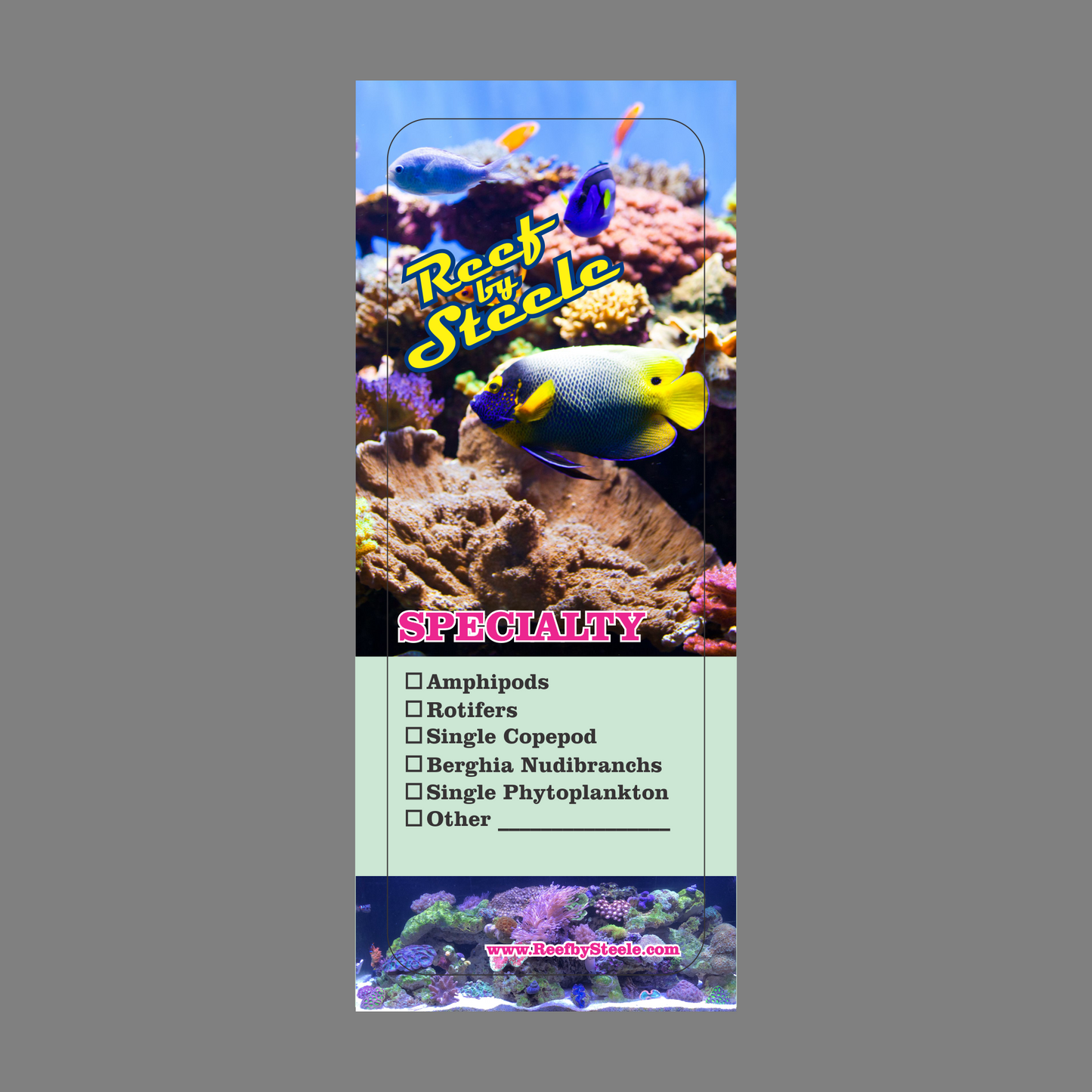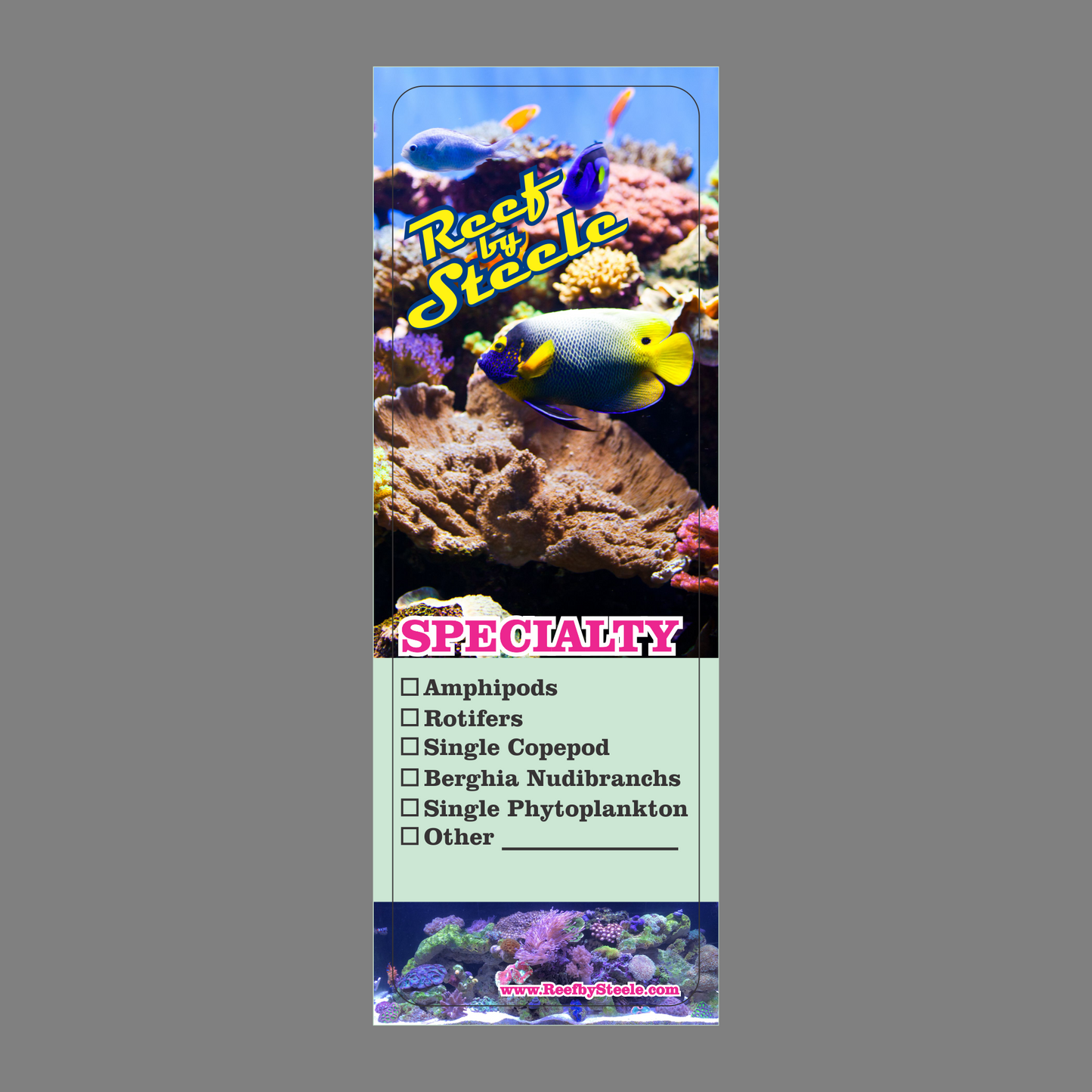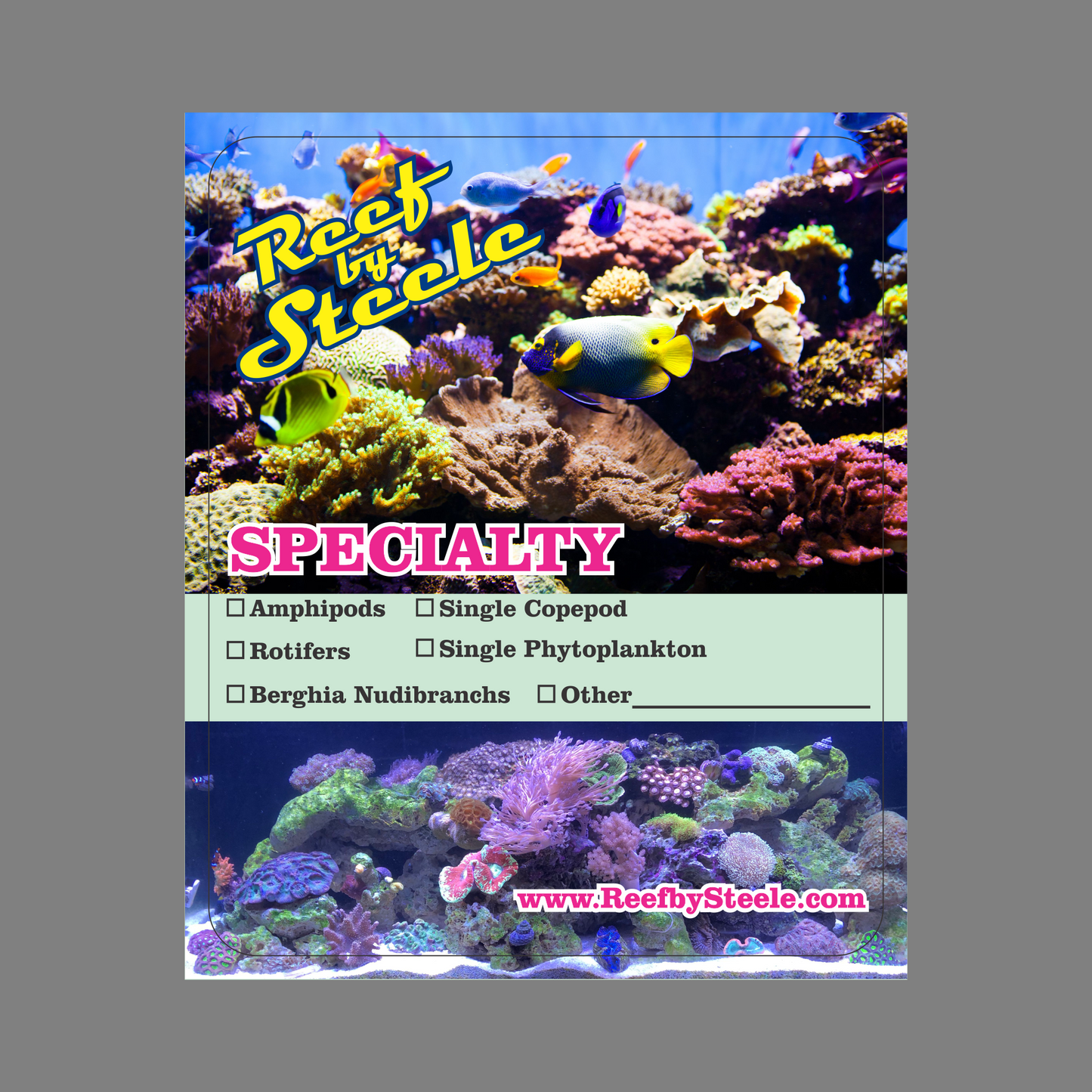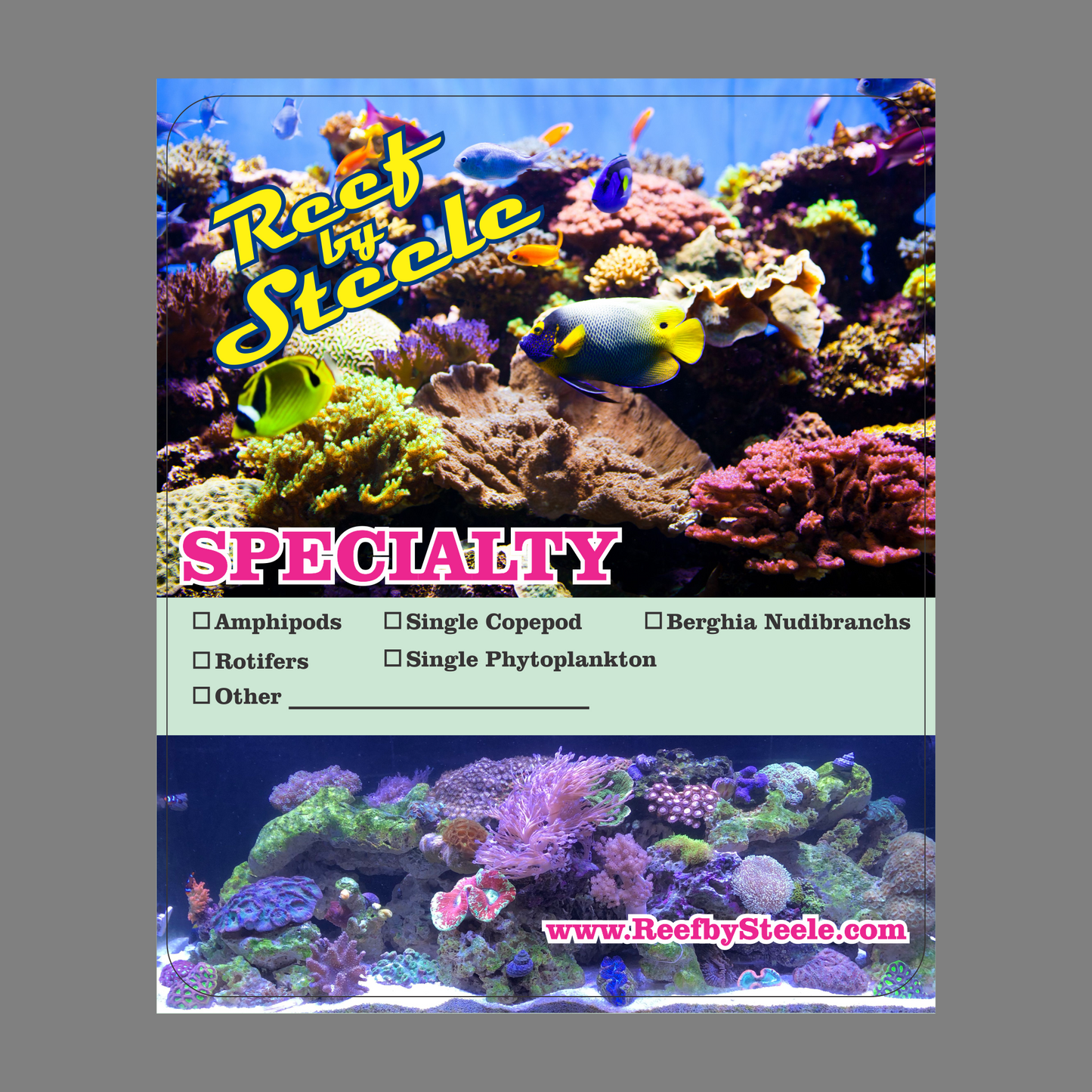Reef By Steele
Single Strain Culture Phytoplankton Non-Diatom
Single Strain Culture Phytoplankton Non-Diatom
Couldn't load pickup availability
SINGLE STRAIN PHYTOPLANKTON
Choose from any of our 7 strains of richly cultured non-diatom phytoplankton. Create your own cultures, use to feed specific marine life, or to target specific needs in your saltwater reef system. Always harvested fresh and live. Always cultured in sterile vessels with sterilized saltwater.
CHOOSE FROM:
Rich green - Tetraselmis chuii, Tetraselmis suecica, Nannochloris, Nannochloropsis oculata, Chorella, Dunaliella tertiolecta
Rich Golden - Isochrysis Galbana, Pavlova
Rich Red - Rhodomonas salina, Rhodomonas Lens
BENEFITS OF PHYTOPLANKTON IN YOUR AQUARIUM
Phytoplankton is an abundant source of macro- and micronutrients. You will find protein, carbohydrates, vitamins, lipids, and trace elements. One of the most important nutrients contained within phytoplankton cells are lipids, in particular Omega-3 fatty acids. Omega-3 fatty acids, often referred to as highly unsaturated fats (HUFA), are absolutely essential for the health and coloration of marine invertebrates and fish. Of these fatty acids, eicosapentaenoic acid or EPA (found generally in green-colored phytoplankton species) and docosahexaenoic acid or DHA (found generally in brown-colored phytoplankton species) are of critical importance to marine life, with DHA proving to be the more essential of the two. This is why our PHYTO BUFFET incorporates 5 brown strains, 4 green strains, and one red strain added for improved coral coloration.
In aquariums, regular dosing of phytoplankton increases the health, coloration, growth, and polyp extension of corals. It also increases the development and vibrancy of your marine life, and boosts zooplankton populations.
Phytoplankton can play a major role in water quality and nutrient recycling through their consumption of nitrogenous wastes. Phytoplankton consume nitrogen and phosphorous to perform photosynthesis. In an aquarium environment, adding LIVE phytoplankton will reduce your nitrate (NO3) and phosphate (PO4) levels as the living phytoplankton consume these nutrients for photosynthesis.
Not only will live phytoplankton help reduce NO3 and PO4 levels, but through photosynthesis the phytoplankton help balance pH levels by increasing dissolved oxygen levels in the aquarium while simultaneously reducing carbon dioxide levels.
A further benefit of dosing live phytoplankton in an aquarium is to help reduce or prevent nuisance algae growth (e.g., hair algae, bryopsis, cyano, etc.). Nuisance algae in aquariums consume the same nutrients as live phytoplankton to grow and survive. If live phytoplankton is dosed regularly and consumes these nutrients, the nuisance algae will eventually wither away.
There are a lot of phytoplankton products on the aquarium market, and there is a lot of misinformation about what constitutes a quality phytoplankton product. If you are looking for a quality phytoplankton product that will give your reef the benefits of maximum nutrition, optimal water quality, and help reduce nuisance algae growth, then here's what you need to look for:
- MULTI-SPECIE BLEND
Our PHYTO BUFFET contains a blend of 10 species of phytoplankton covering all the nutritional needs of your aquarium.
***For proper nutrition, you need to dose a MINIMUM of TWO species of phytoplankton.***
- EPA & DHA (GREENS & BROWNS)
Our PHYTO BUFFET contains 5 browns, 4 greens and 1 red strains of phytoplankton covering all the nutritional needs of your aquarium.
**It is critical to dose BOTH high-EPA (typically "green") and high-DHA (typically "brown") species.***
- LIVE (in contrast to concentrates, pastes, or cryopreserved)
Our PHYTO BUFFET is harvested fresh and live each week on the shipping day providing you with the highest quality product you can get.
***In order to receive the benefits of nutrient consumption, the product must be LIVE.***
- NO PRESERVATIVES, GELS, BINDERS, OR OTHER ADDITIVES
Our PHYTO BUFFET is cultured in sterilized water in sterile vessels with no additives or preservatives ever added.
***Avoid products with additives that could be potentially harmful to your reef.***
Share
